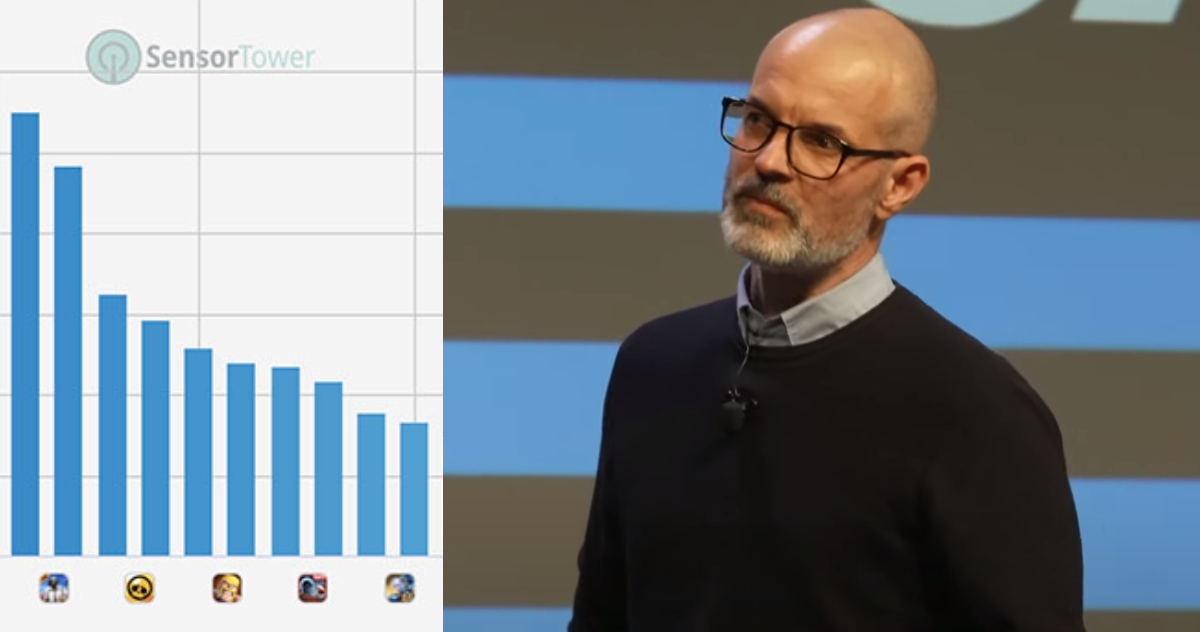Joost van Dreunen, best known as co-founder and former head of the now-closed research firm SuperData, has opened up about Sensor Tower’s acquisition of data.ai. The analyst is not enthusiastic about the new monopoly emerging in the mobile data market.

Joost van Dreunen (right), Image credit: SXSW
A couple of weeks ago, van Dreunen shared his thoughts in his SuperJoost newsletter. He disagreed with Sensor Tower calling the deal an “evolution” that “offers the best path to innovation, more insights across more channels, and ultimately, more value derived by clients.”
Here is why van Dreunen believes that the data.ai acquisition might be a bad sign for the mobile market:
- Lack of competition in the data business will lead to a decline in innovation and value creation;
- Platform-based economy needs an independent third-party source of information, akin to how journalism should serve as the Fourth Estate in politics, so data trackers should evaluate corporate performance and be transparent;
- The data business is filled with same faces, meaning that analysis of the entire US market “comes from barely two dozen lifelong number crunchers and forecasters. Despite their integrity, they depend on a healthy relationship with the firms they cover”;
- Following the acquisition, Sensor Tower laid off 200 data.ai employees (50% of its team), and this will impact the mobile gaming ecosystem: games data will get more expensive, raising “entry barriers and the ability to compete on equal footing for small and medium-sized developers”;
- Games like Monopoly Go! and Royal Match already have marketing budgets ranging between $500 million and $1 billion, and the situation could get even worse;
- “User acquisition in mobile has never been more expensive, and monopolizing the data feed that informs game makers provides leverage to claim a bigger piece of those budgets,” van Dreunen noted. “Up until recently, competition between the two largest mobile data firms has kept rates lower, and that’s about to change.”
Van Dreunen also tried to estimate the cost of the transaction, pointing out that data companies are usually valued at 2-5x their annual revenue. “Taking into consideration that the momentum in the mobile game sector is currently flat and the fact that Bain Capital provided credit-based financing [to Sensor Tower] with additional funding from Riverwood Capital and Paramark Ventures, the multiple sits at the lower end of the spectrum,” he said.
According to TechCrunch, data.ai had $100 million in annual revenue prior to the acquisition. So van Dreunen suggested that Sensor Tower could pay around $300 million for its former rival, calling it “not a terrible outcome” for data.ai, but “not a blowout success either.”
What’s also important is that Sensor Tower has taken on debt with this deal, with Riverwood Capital becoming its majority shareholder. Van Dreunen thinks the company could eventually go public, as its investors will push for rapid growth.
